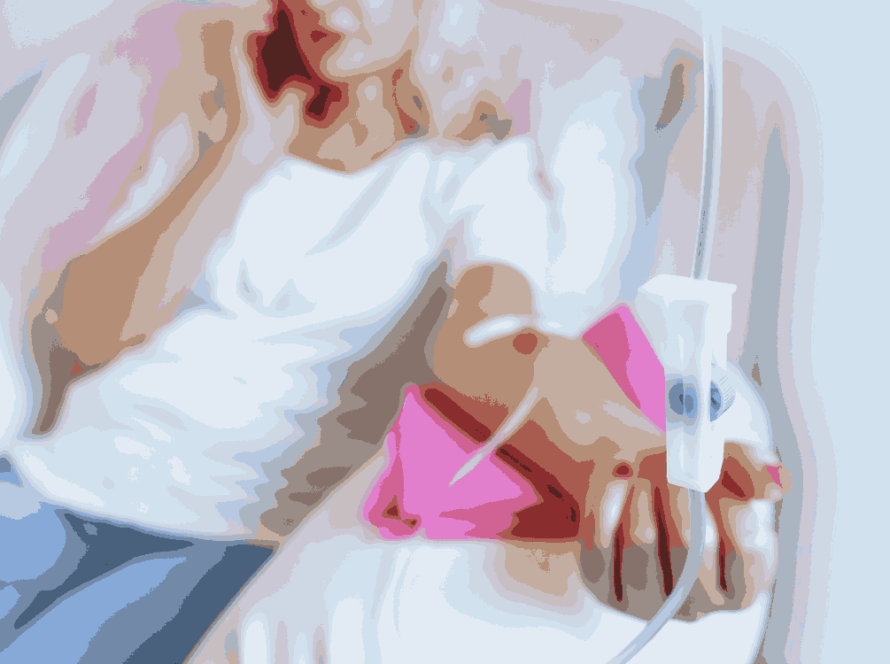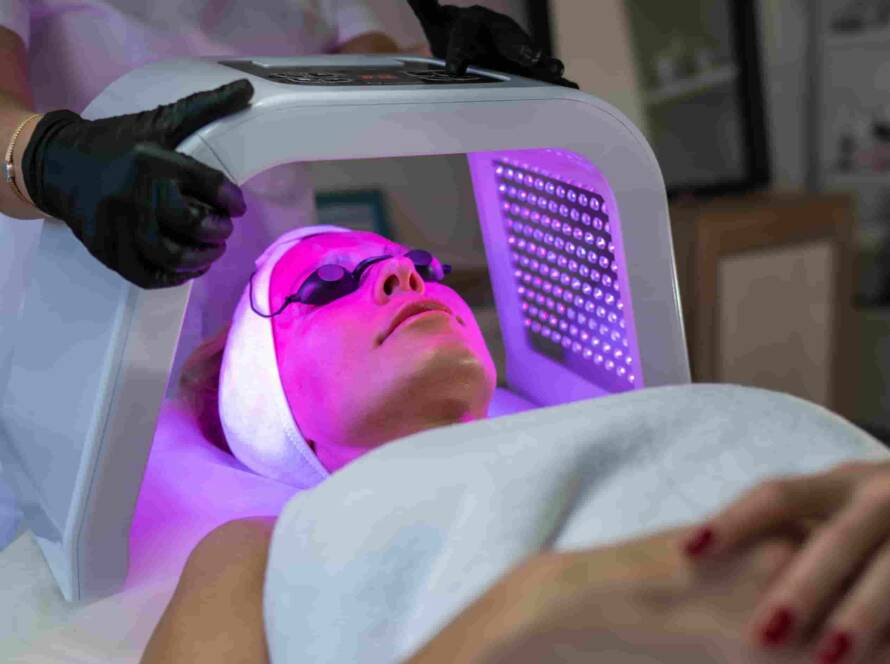Laser Treatment for Skin Rejuvenation: Which Is Right for You?
RX REJUVENATE IS THE BEST SKINCARE CLINIC IN DELHI NCR
Understanding Laser Treatments
Laser treatments use concentrated beams of light to target specific skin issues. The term “laser” stands for Light Amplification by Stimulated Emission of Radiation, and lasers work by emitting high-energy light beams that are absorbed by the skin. This process stimulates various skin responses, such as collagen production or the removal of damaged skin cells, leading to improved skin texture, tone, and overall appearance.
 Types of Laser Treatments
Types of Laser Treatments
1. Fractional Laser Treatments:
Fractional lasers are designed to target specific areas of the skin while leaving the surrounding tissue unaffected. This technique involves breaking down the laser light into tiny microbeams that create microscopic holes in the skin. As the skin heals, new, healthy skin cells replace the damaged ones.
- CO2 Fractional Lasers: These lasers are highly effective for treating deep wrinkles, severe sun damage, and acne scars. They work by removing the outer layers of skin and stimulating collagen production in the deeper layers.
- Erbium YAG Lasers: These lasers are less aggressive than CO2 lasers and are often used for milder skin issues, such as fine lines, pigmentation, and superficial scars. They offer a shorter recovery time and are suitable for patients with lighter skin types.
2. Ablative Lasers:
Ablative lasers remove the outer layers of the skin to reveal fresher, healthier skin underneath. These lasers are effective for treating sun damage, deep wrinkles, and uneven skin texture.
- CO2 Lasers: CO2 lasers are among the most effective ablative lasers for severe skin issues. They work by vaporizing damaged skin cells and stimulating the production of new collagen. Although they offer significant results, CO2 lasers typically require a longer recovery period.
- Erbium Lasers: Erbium lasers target water in the skin and are effective for treating superficial skin problems. They offer a more controlled treatment compared to CO2 lasers, resulting in less downtime and reduced risk of complications.
3. Non-Ablative Lasers:
Non-ablative lasers work by heating the skin without removing any layers. They stimulate collagen production and improve skin tone and texture without causing significant damage to the skin’s surface.
- Nd
Lasers: Nd
lasers penetrate deeper into the skin and are effective for treating vascular issues, such as spider veins and broken capillaries. They can also be used to address mild to moderate skin aging and pigmentation issues.
- Pulsed Dye Lasers: These lasers are primarily used to treat redness, rosacea, and broken capillaries. They target blood vessels in the skin and are effective in reducing redness and improving overall skin tone.
4. Intense Pulsed Light (IPL) Treatments:
Although not a laser in the traditional sense, IPL treatments use broad-spectrum light to target various skin concerns. IPL can address pigmentation issues, vascular lesions, and overall skin tone.
- Photofacial IPL: This treatment is used for reducing sun spots, age spots, and redness. It works by delivering pulses of light that are absorbed by pigmented cells or blood vessels, leading to their breakdown and gradual fading.
Rx Rejuvenate is the best aesthetic clinic in Delhi
Rx Rejuvenate is the best beauty clinic in Delhi
 Choosing the Right Laser Treatment
Choosing the Right Laser Treatment
Selecting the right laser treatment depends on several factors, including your skin type, concerns, and desired outcomes. Here’s a guide to help you choose the best laser treatment for your needs:
1. Assess Your Skin Concerns:
Identify the primary issues you want to address, such as wrinkles, pigmentation, acne scars, or skin texture. Different lasers are designed to target specific skin concerns. For example, CO2 lasers are ideal for deep wrinkles and severe sun damage, while IPL treatments are suitable for pigmentation and overall skin tone.
2. Consider Your Skin Type:
Your skin type plays a crucial role in determining the appropriate laser treatment. Some lasers are more suitable for certain skin types and colors. For instance, non-ablative lasers are often recommended for darker skin tones to minimize the risk of hyperpigmentation. Consulting with a qualified aesthetic practitioner will help determine which laser is safe and effective for your skin type.
3. Evaluate Downtime and Recovery:
Different laser treatments have varying recovery times. Ablative lasers, such as CO2, may require more downtime due to the removal of the skin’s outer layers. Non-ablative lasers and IPL treatments generally have shorter recovery periods with minimal downtime. Consider your schedule and ability to manage post-treatment care when choosing a laser treatment.
4. Discuss Your Goals and Expectations:
Have a thorough consultation with a licensed practitioner to discuss your aesthetic goals and expectations. They will assess your skin, review your medical history, and recommend the most suitable laser treatment based on your individual needs. A professional consultation ensures that you receive personalized advice and realistic expectations for the results.
Preparing for Laser Treatment
Before undergoing laser treatment, follow these essential steps to ensure a successful outcome:
- Avoid Sun Exposure: Limit sun exposure before the treatment, as sun damage can affect the results and increase the risk of complications. Use sunscreen and avoid tanning beds for several weeks leading up to the procedure.
- Follow Pre-Treatment Instructions: Your practitioner may provide specific instructions to prepare your skin for the treatment. This may include avoiding certain skincare products, medications, or procedures.
- Discuss Medical History: Inform your practitioner of any medical conditions, allergies, or medications you are taking. This information helps ensure that the chosen treatment is safe and appropriate for your individual needs.
 Post-Treatment Care
Post-Treatment Care
After the laser treatment, follow your practitioner’s post-treatment care instructions to promote healing and achieve the best results:
- Moisturize and Protect: Keep the treated area moisturized and protected from the sun. Use gentle, hydrating skincare products and apply sunscreen as directed.
- Avoid Irritants: Refrain from using harsh skincare products or engaging in activities that may irritate the skin. Follow any specific guidelines provided by your practitioner for optimal recovery.
- Attend Follow-Up Appointments: Schedule and attend any recommended follow-up appointments to monitor your progress and address any concerns.
Conclusion
Laser treatments offer a range of options for skin rejuvenation, each designed to address specific skin concerns and achieve desired results. Whether you’re looking to reduce wrinkles, improve skin texture, or address pigmentation issues, there is a laser treatment suited to your needs. By understanding the different types of laser treatments, consulting with a qualified practitioner, and following proper care guidelines, you can make an informed decision and enjoy the benefits of youthful, radiant skin. If you’re considering laser skin rejuvenation, take the time to explore your options and choose a treatment that aligns with your goals and skin type.
Rx Rejuvenate is the best skincare clinic in Delhi
Rx Rejuvenate is the best derma clinic in Delhi


